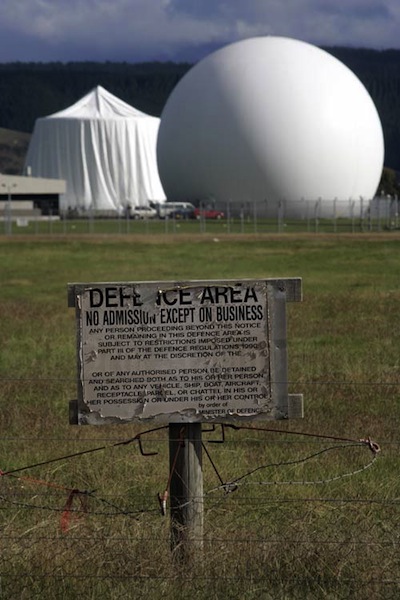
The Snowden revelations demonstrate that the Five Eyes electronic spy agencies (including our GCSB) like to be able to spy on everyone, and their governments shape laws to allow this.
The main GCSB facility, the Waihopai spy station, collects, without discrimination or individual warrants, all communications passing through the satellites its dishes are focused on.
Warrants are presumably needed when the GCSB filters the information from Waihopai (and that gained from its four Five Eyes partners) to target the communications of specific individuals or groups of individuals.
However, we know from the Snowden papers that the US NSA and the UK GCHQ use “selectors” – which could be key words – to filter millions of phone calls and emails – including those of New Zealanders. This is mostly done without warrants relating to specific individuals. There is no reason to believe the GCSB’s Waihopai operation is any different.
For example, one of the selectors could be “off-shore drilling”, which might catch international phone calls between Greenpeace offices planning sea-born protests. The GCSB then finds it doesn’t have a warrant to spy on Greenpeace? No worries. Under the proposed amendment to the GCSB Act, the Bureau can use “incidentally obtained intelligence”, not only for detecting serious crime, but also for “identifying, preventing, or responding to threats or potential threats to the national security of New Zealand or any other country.”
Given that “national security” is a catch-all term, and the GCSB’s objectives include protecting the “international relations” and “economic well-being” of New Zealand there would be little legal impediment to the GCSB continuing to “incidentally obtain” the content of international phone calls of groups such as Greenpeace. Our government is of the firm view that off-shore drilling is in New Zealand’s economic interests and that stopping it would harm “international relations” with the countries the drillers come from.
Of course, we see it differently, and could argue in Court against such GCSB spying on the basis that New Zealand’s “economic well-being” is not served by the trans-national oil drillers. Except that such a case would never get to Court because there is no way of finding out who the GCSB is spying on – short of an Edward Snowden-type whistleblower.
The situation in America is similar. The legal framework around the NSA allows the agency to use “inadvertently acquired” intelligence. When you are trawling through many billions of phone calls and emails a month – as the NSA is – you can come up with a fair amount of “inadvertently acquired” intelligence.





[…] Don’t worry, the GCSB is only spying on you “incidentally” – Keith Locke writes, […]
Comments are closed.